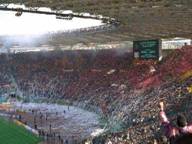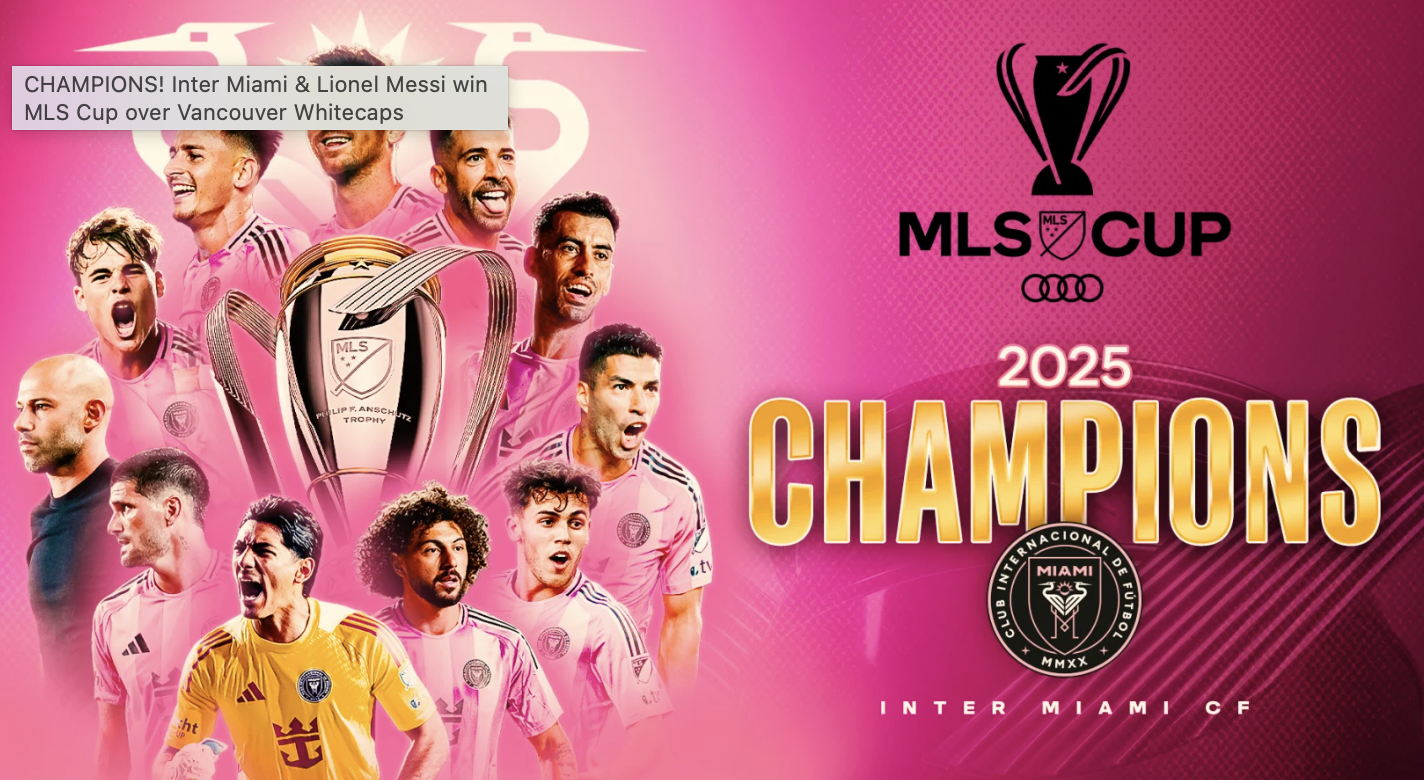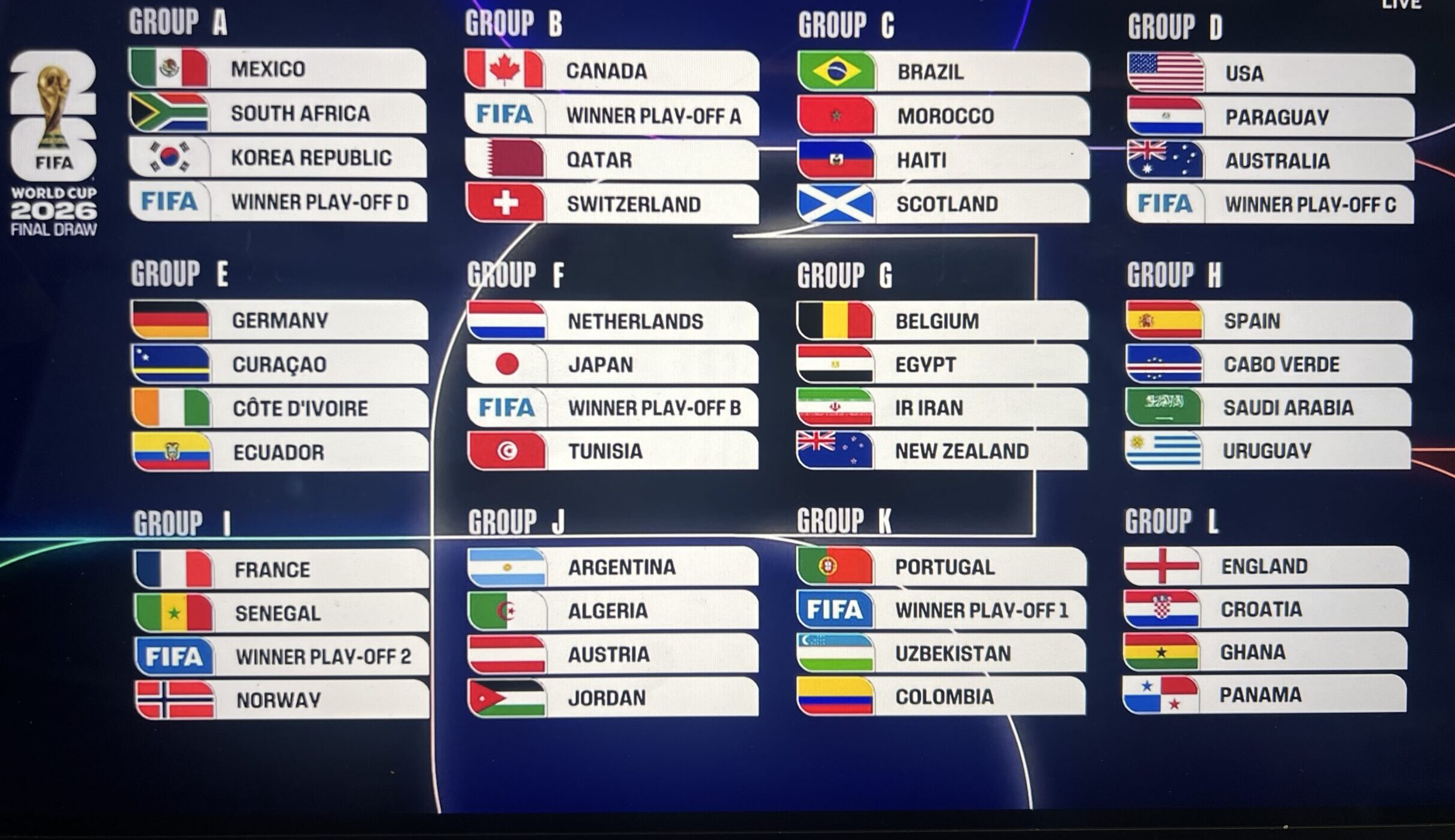| The Roman fans weren’t children cheering on their offspring. Most of these fans left their children home. Italian football is more than the competition on the field and more than bragging rights. It’s power, it’s life, it’s a reason for existence. I remained in Italy for 23 more days after this football game. In Roma, I wore the Roman scarf, in the South, the scarf of Napoli, in Umbria, the scarf of Perugia, and in Tuscany, the purple of Fiorentina. Everywhere I went, I experienced the same thing: spontaneous and unsolicited cries by passer-byes. “Forza Roma!” “Forza Napoli!” “Forza Perugia!” “Forza Viola (Fiorentina)!” These are fans who love their teams and believe in the power, the force, their teams brings to their existence.
I can’t close my thoughts on this game without reflecting on the game as it’s played in my own country. Alas, we have so far to go! Will Americans ever embrace this sport to the degree the Italian fan does? American soccer, to this point, is more about family pride than community pride. Many American children play the sport and parents have embraced it as a positive sports experience for their children. It’s good enough to get a thousand or two to see a local men’s game in Chico, California. And when our women play, it’s good enough to get large stadiums filled when they represent National pride. But do Americans fill real sized stadiums at professional men’s games on a regular basis? There are some rare exceptions, but the predominant vision is one of the sparsely filled monster stadiums of Kansas, New York, and even LA. Major League Soccer thanks God for the existence of players like Hermosillo, Etcheverry, and Novak. These players draw in foreign fans who, like the Italian faithful, love their football heroes. But relatively few American born fans make it their priority to lay down dollars and dedicate time to see Eddie Pope, Richie Lewis, or Paul Bravo. If you want to find a fan willing to pay top dollar to see an American player, you have to go to Spain. I dare say there are more Spanish who think passionately about the presence of Casey Keller on this planet, as enemy or as foe, than there are Americans who know his name. There was another thought that kept finding its way to my consciousness during the game. It was the “you should be ashamed of yourself Eric Wynalda and John Harkes” thought. These players, perhaps emboldened by their stints as professional football players in the European first division, exemplify American soccer’s biggest problem. American players, for the most part, think they’re really hot stuff and, the reality is, they’re just not. Casey Keller is the only true exception. The few American players who do play internationally at the highest level are, at the best, average. Why is Harkes so obviously arrogant on the field of play? Why couldn’t he accept playing defender for Sampson’s team? Why does Wynalda play with indifference? Why can’t he operate within a team’s structure? The answer goes to the heart of the matter: American players, for the most part, have been born and bred within pay-to-play programs, isolated for the most cases within protected suburban, white communities of this country, cheered on by less than knowledgeable parents and coaches, and rewarded for the wrong thing: being great! Football is not about being great; it’s about systematically subjecting yourself to a rigid discipline of play that has less room for individuals and greater need for integrated behavior. If Wynalda was Ronaldo, you might have a valid exception, but Wynalda is not an exception. The great teams of the world play great football: Manchester, the Brazilian National Team, any of a number of Italian Serie A teams. When the American National Team does well, it does well because it plays great football. Hats off to Arena! He can get Americans to play great football. The Roma – Bari game was, if not great football, very, very good football. The Roman and Bari players, any one of which was better at his position than any American, save perhaps Casey Keller, played with the same passion and emotion that the Roman and Bari fans were expressing in the stands. Victory was life. A loss was death. Who cares about one individual’s sense of self-importance? It’s clearly irrelevant if you can’t make a difference on the battlefield. These are the professionals of the world. They were children who grow up in the streets of cities like Roma, Sao Paolo, Manchester, and Mexico City. If they come from outside the city, it’s more likely to be rural Bolivia than rural Illinois. These are players hungry to play because they’re hungry to survive. There are exceptions among America’s soccer players but the fact is that we’ve managed to create a pampered lot. American players aren’t, for the most part, hungry enough to make great teams. We have so institutionalized the American soccer culture that the Hispanic player is often alienated, the African American child is often excluded, and the Asian child is often ignored. In the meantime, the future of the sport remains in the hands of suburban America and the children who are raised there. The game ended in a convincing 3 to 1 victory by Roma over Bari. At the end of the match, at the end of the day, when we were able to calmly walk from our perched positions high in the Stadio Olimpico, and head towards the gates, my head was filled with the day’s thoughts. I was glad, after all, that my mother did come. She enjoyed ever minute of our adventure and never complained. We all felt that we had experienced something special and unique. We weren’t thinking any more about the inconveniences, the confusion, the moments of despair. We had after all seen something wonderful. We had marveled at the passion. And we also had to swallow some reality because we had become even more aware of how and, perhaps why; the international game of football is still not an American game. As we passed under the icons of Olympic grandeur, the marble celebrations of the athlete and warrior, I couldn’t help but to envy the Roman fan who gets to enjoy their team in real life. I stopped at the concession stand and bought a red and yellow scarf of Roma. It may have been just another day at the Stadio Olympico for Romans, but, for me, it was one of the most extraordinary and unforgettable days of my life. |
Il Mistero Italiano – Watching Roma in Rome Part 5
















